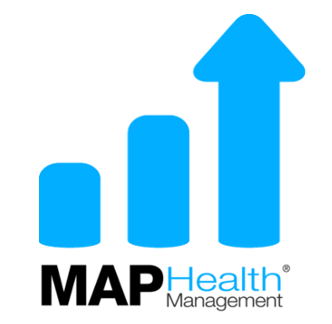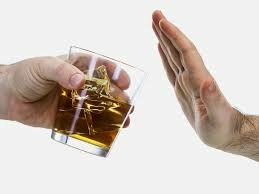Why is Pornography So Powerfully Addictive?
June 20, 2017 Thomas G. Kimball, PhD
Published in The Doctor Weighs In, June 20, 2017. View the Article Here
 A few months ago, a friend, who is a physician’s assistant working in a urology clinic, approached me with a concern. He told me, in general terms, that several emerging adult men, ages 18-25, were coming into the clinic with problems associated with Erectile Dysfunction (ED). Upon physical examination, he found these young men to be healthy and most of the time particularly fit individuals with no physical explanation for their ED. Further assessment revealed the common denominator between these young men was their high consumption and daily viewing of pornography.
A few months ago, a friend, who is a physician’s assistant working in a urology clinic, approached me with a concern. He told me, in general terms, that several emerging adult men, ages 18-25, were coming into the clinic with problems associated with Erectile Dysfunction (ED). Upon physical examination, he found these young men to be healthy and most of the time particularly fit individuals with no physical explanation for their ED. Further assessment revealed the common denominator between these young men was their high consumption and daily viewing of pornography.
The concern about pornography for my friend as a medical provider, for these young men, and for those who seek to help them sparks some important questions:
- Why is pornography so powerful?
- Is pornography addictive?
- How can someone tell if they are addicted to pornography?
- What help is available?
Why is pornography so powerful?
The simple answer is that pornography acts like a drug in the brain and can become very powerful, particularly for some individuals. Researchers Love, Laier, Brand, Hatch, and Hajela (2015) conducted and published a review of several studies exploring the neuroscience of internet pornography. What they found and reported is compelling. Studies examining the neuroimaging results of subjects who viewed internet pornography reveal brain region activation similar to craving and drug cue reactions for alcohol, cocaine, and nicotine.1
People who identified as engaging in compulsive sexual behaviors showed more reactivity in the brain when compared with those who identified as non-compulsive. Thus, viewing pornography, especially when it becomes compulsive in nature, activates the same underlying brain networks as alcohol and other drugs. These studies offer profound evidence that the compulsive and consistent use of pornography is potentially as powerful as drug use.
A great video presentation and review of studies on the brain of pornography use can be found at the Your Brain on Porn website.2
Is viewing pornography an addiction?
It is reasonable to declare that not everyone who drinks alcohol becomes addicted to alcohol. The same can also be said for internet pornography. Not everyone who views pornography will become addicted. The journey to become addicted to pornography most likely follows the same pattern as drug addiction. For example, at some point, a person may be exposed to pornographic images and then begins to experiment with pornography. This experimentation may progress to abuse and then, dependence marked by viewing more and more in depth types of pornography and experiencing physical and psychological withdrawals symptoms when attempting to stop. Then, for some, addiction sets in due to a variety of genetic, environmental, and psychological factors.
The American Society of Addiction Medicine (ASAM) acknowledges that engaging in addictive behaviors, apart from alcohol and other drug use, can be a common manifestation of the chronic brain disease of addiction. In their definition of addiction, ASAM presents an important section on the “Behavioral Manifestations and Complications of Addiction.” This section provides strong indicators that addiction can also manifest in sexual compulsive behaviors including internet pornography. The following are excerpts from ASAMs long definition of addiction highlighting these behaviors (the bold has been added for emphasis)3:
- Excessive use and/or engagement in addictive behaviors, at higher frequencies and/or quantities than the person intended, often associated with a persistent desire for and unsuccessful attempts at behavioral control.
- Excessive time lost in substance use or recovering from the effects of substance use and/or engagement in addictive behaviors, with significant adverse impact on social and occupational functioning (e.g. the development of interpersonal relationship problems or the neglect of responsibilities at home, school, or work)
- Continued use and/or engagement in addictive behaviors, despite the presence of persistent or recurrent physical or psychological problems which may have been caused or exacerbated by substance use and/or related addictive behaviors.
Thus, internet pornography behaviors may reach the level of addiction when accompanied by unsuccessful attempts to stop, impairment in social and occupational functioning, and the presence of persistent or recurrent physical and psychological problems.
Am I addicted?
How can someone tell if they are addicted to pornography? Besides the behaviors and symptoms described above, some great researchers have put together instruments measuring sexual compulsivity and internet pornography use. For example, Grubbs, Volk, Exline, and Pargament (2015) revised and validated a brief measure of internet pornography addiction called the Cyber Pornography Use Inventory (CPUI-9).4 Within the 9 questions of the instrument, rated on a scale from 1 (not at all) to 7 (extremely) is an assessment of perceived pornography addiction. The questions can also be answered true or false. Consider them below:
- I believe I am addicted to Internet pornography (Compulsivity)
- Even when I do not want to use pornography, I feel drawn to it (Compulsivity).
- I feel unable to stop my use of online pornography (Compulsivity).
- At times, I try to arrange my schedule so that I will be able to alone in order to view pornography (Access Efforts).
- I have refused to go out with friends or attend certain social functions to have the opportunity to view pornography (Access Efforts).
- I have put off important priorities to view pornography (Access Efforts).
- I feel ashamed after viewing pornography online (Emotional Distress).
- I feel depressed after viewing pornography online (Emotional Distress).
- I feel sick after viewing pornography online (Emotional Distress).
The potential for Internet pornography addiction and the factors that make up such addiction can be found within the intent of the questions. These include a person’s efforts to access internet pornography, the emotional distress caused by viewing pornography, and a person’s perceived compulsivity to the behavior.
The full article by the authors is certainly worth the read and can be found and downloaded here.
What help is available?
For those who are grappling with internet pornography use or addiction, help is always available. Books by the renowned author Patrick Carnes such as Out of the Shadows and A Gentle Path can be incredibly helpful in gathering more information and starting a recovery journey. Also, specially trained psychologist, counselors, and marriage and family therapists can be incredibly helpful in the process.
What is most important is once a problem such as Internet pornography is realized, you reach out to meaningful help. Holding onto hope and developing new and healthier ways to cope is always possible.
References
1. Love, T., Laier, C., Brand, M., Hatch, L., & Hajela, R. (2015). Neuroscience of internet pornography addiction: A Review and update. Behavioral Sciences, (5), 388-423.
2. Your Brain on Porn. https://www.yourbrainonporn.com/brain-scan-studies-porn-users
3. American Society of Addiction Medicine (ASAM). Long Definition of Addiction. https://www.asam.org/quality-practice/definition-of-addiction
4. Grubbs, J.B., Volk, F., Exline, J.J., & Pargament K.I. (2015). Internet pornography use: Perceived addiction, psychological distress, and the validation of a brief measure. Journal of Sex and Marital Therapy, 41(1), 83-106.








